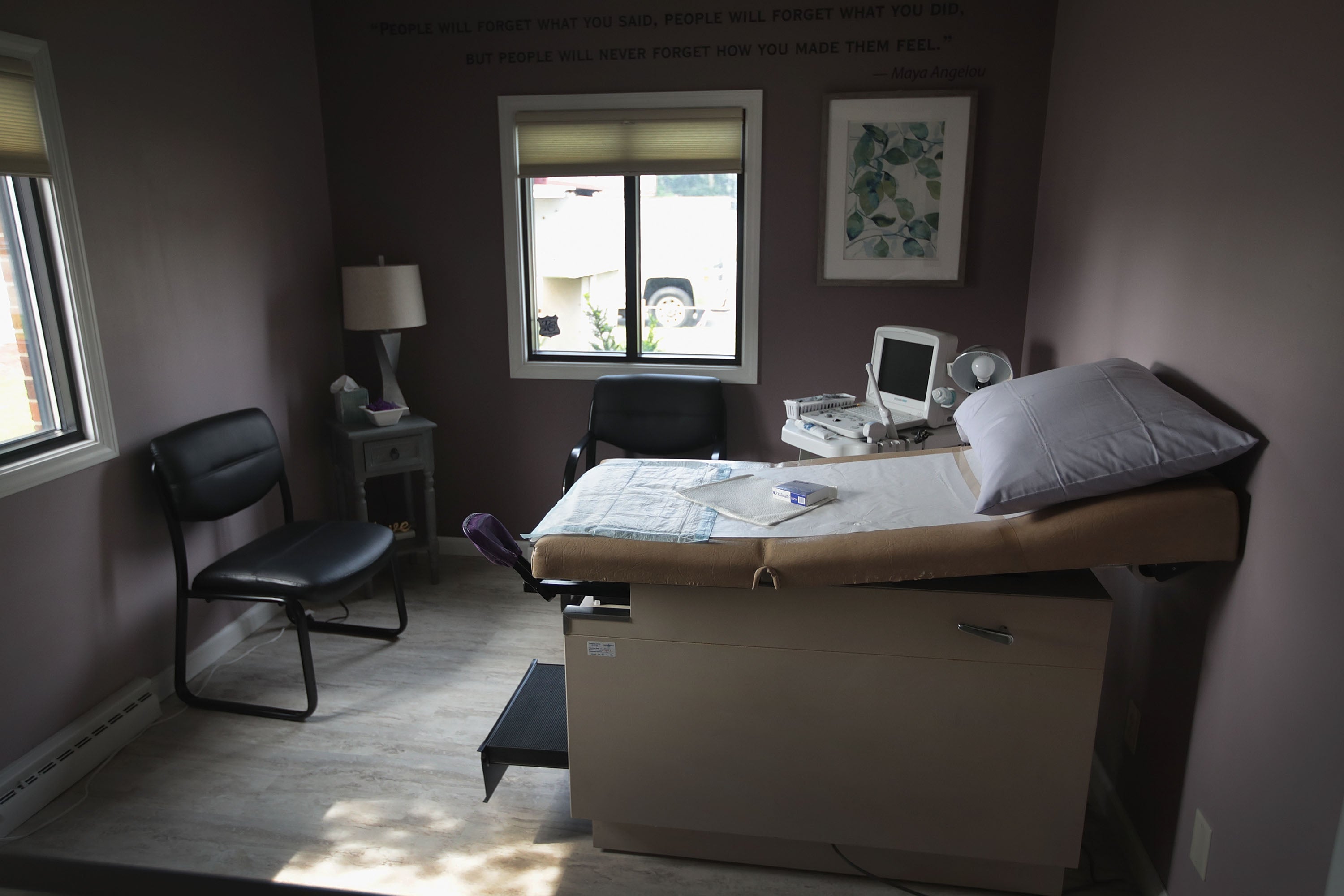Federal judge strikes down Indiana’s ‘feeble’ attempts to restrict abortion
The state has one of the lowest abortion rates in the country

A federal judge struck down multiple abortion restrictions in Indiana, finding that the state had only offered “feeble” explanations for the policies, which offered no clear health benefit to women.
On Tuesday, US District Court judge Sarah Evans Barker issued a permanent injunction covering multiple state laws: a ban on using telemedicine for medication-induced abortions, a prohibition on second-trimester abortions outside hospitals, and rules requiring women to be told life begins when an egg is fertilized and a fetuses might feel pain at or before 20 weeks.
“The State’s attempt to explain its basis for excluding the far-reaching benefits of telemedicine from this category of patients is feeble at best, especially given the widespread use of telemedicine throughout Indiana as well as the overall safety of medication abortions,” Ms Barker wrote in her ruling.
Of the rules about mandatory statements on when life begins and when fetuses feel pain, the federal added “this mandatory disclosure does not communicate truthful and non-misleading information”.
Virginia-based Whole Woman’s Health Alliance, which brought the case in 2018 after it was denied permission to open an abortion clinic in South Bend, Indiana, celebrated the ruling.
Amy Hagstrom Miller, CEO of the group, told the AP in a statement that “providing abortion care in Indiana has not been easy,” but it was “grateful to the courts for upholding the right to evidence-based abortion care by overturning these unjust and burdensome regulations”.
The state’s Republican Attorney General Todd Rokita, who defended the law, said he may appeal the ruling in higher court.
“We will continue to fight to defend Indiana’s commonsense abortion laws and to build a culture of life in Indiana,” he said in a statement.
If the telemedicine abortion ban had stood, it likely would’ve restricted abortion access in the state, especially during the pandemic when many couldn’t or wouldn’t attempt in-person medical care.
The deeply conservative state has attempted numerous abortion restrictions in recent years, including a law blocked by a federal judge earlier this year requiring doctors to tell women about a disputed “abortion reversal” treatment. Judge Barker in 2019 also struck down a ban on a common second-trimester abortion procedure.
These policies have had their desired effect: according to a 2018 analysis from the Kaiser Family Foundation, Indiana had one of the lowest abortion rates in the country, ranked 35th out of 50 states with 6.2 abortions per thousand people, among those aged 15 to 44.
The year 2021 has been the most restrictive for abortions since the landmark Roe v Wade Supreme Court decision in 1973 guaranteeing abortion rights, according to the Guttmacher Instititute, a sexual and reproductive rights group. There have already been 90 new abortion restrictions passed since the beginning of the year.
“Many of these actions took place in the beginning of the year, despite the need for state legislatures to address critical issues ranging from racial equity to the COVID-19 response and pandemic-related health care,” the institute wrote in a July report, adding, “The 2021 abortion restrictions amplify the harm of earlier ones: Each additional restriction increases patients’ logistic, financial and legal barriers to care, especially in regions where entire clusters of states are hostile to abortion.”
Republican-controlled states such as Arkansas and Oklahoma have passed near-total abortion bans, and others like Idaho, South Carolina, and Texas have following suit, with bans on abortions after six weeks, meaning most women only have a few-week period when they know they are pregnant and could get the procedure.
The Supreme Court of the US has also agreed to hear a case about Mississippi’s pre-viability abortion ban, and the state has asked the conservative-leaning high court to rule on Roe v Wade in the process.
Join our commenting forum
Join thought-provoking conversations, follow other Independent readers and see their replies
Comments
Bookmark popover
Removed from bookmarks